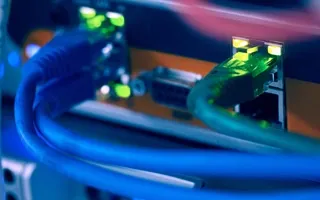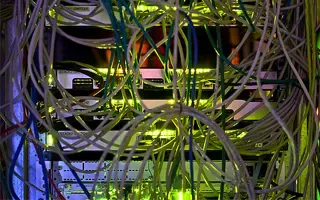Network Fundamentals: Top Picks
Network Fundamentals
Introduction To Networking
A network is simply a group of two or more Personal Computers linked together. Many types of networks exist, but the most common types of networks ar…
Network Fundamentals
Media Access Control - MAC Addresses
A MAC address, or Media Access Control address, is a unique identifier assigned to a network interface controller (NIC) for use as a network addres…
Network Fundamentals
Power over Ethernet - Understanding PoE Technolog…
Power over Ethernet (PoE) was invented by PowerDsine back in 1997 and the first power injector (Midspan) was installed in 1998! Many manufacturespart…
Network Fundamentals
LAN Network Topologies
Network topologies can take a bit of time to understand when you're all new to this kind of cool stuff, but it's very important to fully understand t…
Featured Subcategories:
Netflow Articles:
Netflow
NetFlow Analyzer: Free Download, Step-by-Step Ins…
In our previous article we explained how a Netflow Analyzer can help you gain visibility into your user traffic, application traffic and data flows w…
Netflow
Netflow: Monitor Bandwidth & Network Utilization…
Monitoring network traffic & bandwidth usage via Netflow is mandatory for any type and size network. Gaining visibility into user traffic, applic…
Netflow
Netflow vs SNMP. Two Different Approaches to Netw…
SNMP (Simple Network Management Protocol) and Netflow are both popular protocols with admins, prized for their ability to give visibility over the ne…
Netflow
Complete Guide to Netflow: How Netflow & its Comp…
This article will cover the basics of Netflow, including its use cases, Netflow supported devices, Netflow history, and variants. We’ll also dive int…
Network Protocols:
TCP - UDP Protocol Analysis
TCP Header Anaylsis - Section 3: TCP Header Lengt…
The third field under close examination is the TCP Header length. There really isn't that much to say about the Header length other than to explain w…
TCP - UDP Protocol Analysis
Transmission Control Protocol - Part 3: The TCP H…
This article shows the TCP Header and Segment. We explain where the TCP Header and Segment are located in an Ethernet frame and also briefly view the…
TCP - UDP Protocol Analysis
Transmission Control Protocol - Part 2: Quick Ove…
As previously mentioned on a number of occasions, TCP is one of the two protocols that lives at the Transport layer and is used to carry data from on…
Supernetting & CIDR
The Supernetting / CIDR Chart
This articles build upon our previous pages covering what is Supernetting (Route Summarization) & How Supernets Work and Supernetting In-De…
Domain Name System (DNS)
The DNS Protocol - Part 1: Introduction
If you ever wondered where DNS came from, this is your chance to find out ! The quick summary on DNS's history will also help you understand why DNS…
Subnetting
IP Subnetting - Part 1: The Basic Concepts
When we subnet a network, we basically split it into smaller networks. For example, when a set of IP Addresses is given to a company, e.g 254 they mi…
TCP - UDP Protocol Analysis
TCP Header Anaylsis - Section 6: TCP Options
The TCP Options (MSS, Window Scaling, Selective Acknowledgements, Timestamps, Nop) are located at the end of the TCP Header which is also why they ar…
TCP - UDP Protocol Analysis
Transmission Control Protocol - Part 1: Introduct…
Understanding how each protocol fits into the OSI Model is essential for any network engineer. This page analyses how TCP is classified as a 'transpo…
STP/ICMP Protocols:
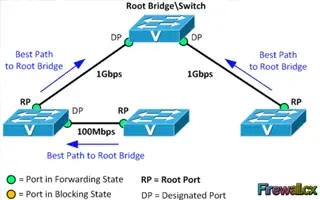
Spanning Tree Protocol (STP)
Spanning Tree Protocol – Part 2: Rapid STP Port C…
Spanning Tree Protocol, Rapid STP port costs and port states are an essential part of the STP algorithm that affect how STP decides to forward or blo…
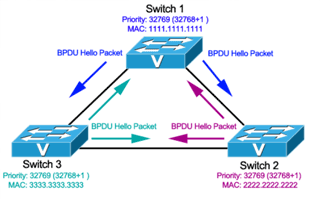
Spanning Tree Protocol (STP)
Spanning Tree Protocol – Part 3: Bridge ID, Prior…
In this article we will examine the Spanning Tree Bridge ID structure, explain why it has increments of 4096, how VLAN information is embedded (for P…
ICMP Protocol
ICMP Protocol - Part 6: Redirect Messages
The ICMP - Redirect Message is always sent from a gateway to the host and the example below will illustrate when this is used.
Putting it simply (be…
ICMP Protocol
ICMP Protocol - Part 1: Introduction
The Internet Control Message Protocol (ICMP), is a very popular protocol and actually part of an Internet Protocol (IP) implementation. Because IP wa…
Wi-Fi Key Generator
Follow Firewall.cx
Cisco Password Crack
Decrypt Cisco Type-7 Passwords on the fly!
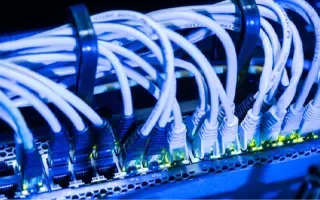
VLAN Networks
Dynamic VLANs
Dynamic VLANs were introduced to grant the flexibility and complexity(!) that Static VLANs did not provide. Dynamic VLANs are quite rare because of their…

VLAN Networks
Comparing Traditional Flat & VLAN Networks
Designing and building a network is not a simple job. VLANs are no exception to this rule, in fact they require a more sophisticated approach because of t…

VLAN Networks
The VLAN Concept - Introduction to VLANs
We hear about them everywhere, vendors around the world are constantly trying to push them into every type of network and as a result, the Local Area Netw…
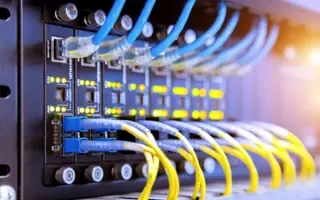
VLAN Networks
VLANs - Access & Trunk Links
If you've read our previous article The VLAN Concept - Introduction to VLANs then you should feel comfortable with terms such as 'VLAN', 'Stati…
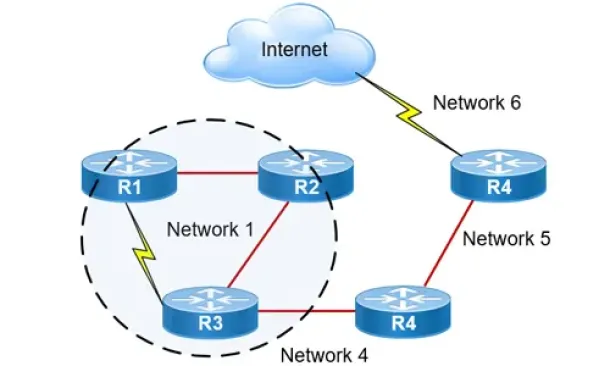
Routing
Hybrid Routing Protocols - Advantages and Disadvantage…
Hybrid routing protocols are a combination of distance-vector and link-state routing protocols, and are used to provide a more efficient and scalabl…
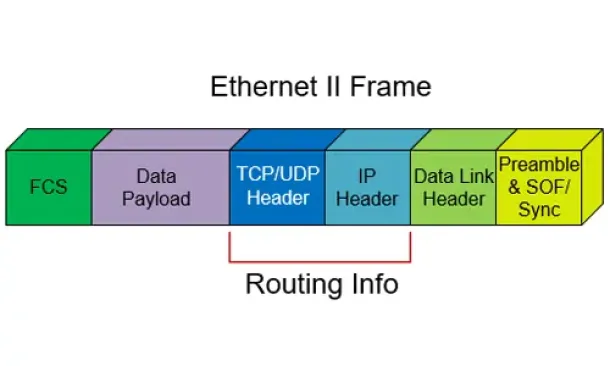
Routing
Routed Protocols
We all understand that TCP/IP, IPX-SPX are protocols which are used in a Local Area Network (LAN) so computers can communicate between with each other and…
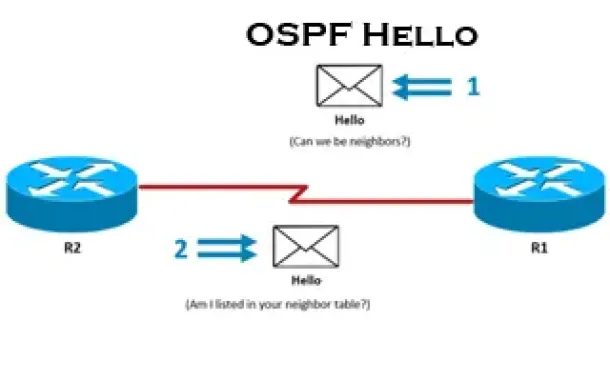
Routing
OSPF - Part 3: OSPF Adjacency & Neighbor Forming Proce…
This is the thrid article of our 6-part OSPF series (see below) that describes how OSPF routers perform neighbor relationship and adjacency. We’ll examine…
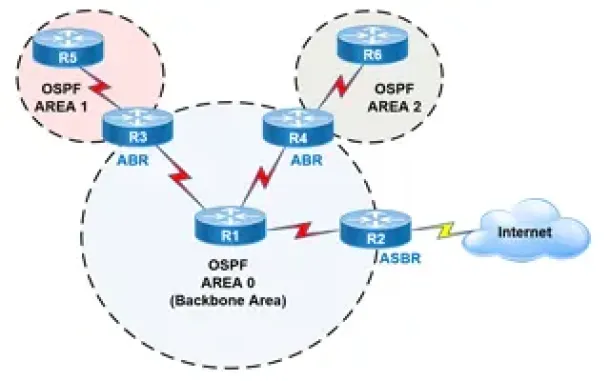
Routing
OSPF - Part 2: How OSPF Protocol Works & Basic Concept…
This article covers basic OSPF concepts and operation. We explain how OSPF works, how OSPF tables are built on an OSPF-enabled router and their purpose (N…
Network Address Translation - NAT
Network Address Translation (NAT) Concepts
Before we dive into the deep waters of NAT, we need to make sure we understand exactly what NAT does. So let me give you the background of NAT, why it's h…
Network Address Translation - NAT
The Network Address Translation Table
After that simple and informative introduction to the NAT concept, it's time to find out more about how it works and this is where the NAT table comes in…
Network Address Translation - NAT
Static NAT - Part 1
Static NAT (also called inbound mapping) is the first mode we're going to talk about and also happens to be the most uncommon between smaller networks.
S…
Network Address Translation - NAT
Dynamic NAT - Part 1
Dynamic NAT is the second NAT mode we're going to talk about. Dynamic NAT, like Static NAT, is not that common in smaller networks but you'll find it used…







